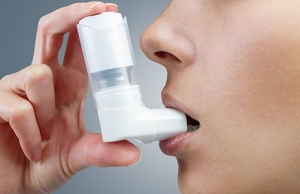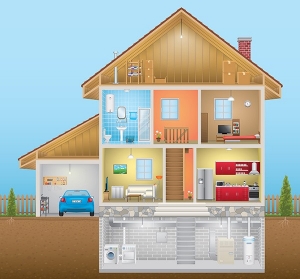Healthy Homes - Asthma

What is asthma?
What happens during an asthma attack?
What are the warning signs of asthma?
What are common asthma triggers?
How can I reduce asthma triggers in my home?
Can indoor air filters or air purifiers be helpful?
What are Clean Air Action Days?
How can schools be asthma friendly?
Interactive asthma data dashboard
Tennessee Asthma Update Webinars
How can medical professionals learn more?
Government partners
Other partners
Helpful resources
What is asthma?
Asthma is a serious lung disease. Symptoms of asthma include wheezing, shortness of breath, chest pain and tightness and coughing. Asthma can even cause death. About 20 million Americans have asthma. Asthma is the leading cause of long-term illness in children. In Tennessee, according to 2016 statistics, some 86,911 children aged 0-17 had asthma.
What happens during an asthma attack?
During an asthma attack, the airways get narrow, making it difficult to breathe. An asthma attack happens in your body's airways, which are the paths that carry air to your lungs. As the air moves through your lungs, the airways become smaller, like the branches of a tree are smaller than the tree trunk. The sides of the airways in your lungs swell and the airways shrink. Less air gets in and out of your lungs, and mucus that your body produces clogs up the airways even more. The attack may include coughing, chest tightness, wheezing, and trouble breathing. Some people call an asthma attack an episode. An asthma attack can occur when you are exposed to things in the environment, such as house dust mites and tobacco smoke. These are called asthma triggers.
What are the warning signs of asthma?
You can control your asthma by knowing the warning signs of an attack, staying away from things that trigger an attack, and following the advice of your doctor or other medical professional. Here are some signs that someone might have or develop asthma:
- coughing, especially at night
- trouble breathing while playing or exercising,
- chest tightness or wheezing, or
- family history of asthma.
If someone may have asthma, it is important to visit a doctor for evaluation. Using a breathing test, your doctor can diagnosis asthma, set an asthma action plan, and prescribe helpful medicine. Controlling asthma is important to good health and quality of life. When you control your asthma:
- you will not have symptoms such as wheezing or coughing,
- you will sleep better,
- you will not miss work or school,
- you can take part in all physical activities,
- you will not have to go to the hospital, and
- you will feel better!
What are common asthma triggers?
Asthma may be triggered by allergens and irritants that are common in homes. People with asthma should avoid these common asthma triggers.
- Mold and moisture
- Pet hair and dander
- Cockroaches
- Mice and rats
- Dust mites
- Chemical irritants
- Tobacco smoke
- Particulate matter
- Nitrogen dioxide
- Ozone
- Extreme temperatures
How can I reduce asthma triggers in my home?
According to the Robert Wood Johnson Foundation, 40% of asthma episodes are caused by preventable unhealthy housing conditions. Here are some ideas to reduce asthma triggers in your home, which are especially important for people already diagnosed with asthma:
- Minimize excess water and moisture to prevent mold
- Control pet hair and dander
- Choose pets for asthmatic children carefully
- Don’t keep pets in bedrooms or allow animals on the bed
- Consider durable flooring instead of thick carpet
- Don’t leave food or dirty dishes out that may attract bugs
- Caulk or seal gaps or holes that could allow mice or bugs to get indoors
- Wash bed linens on a regular basis to reduce dust mites
- Avoid indoor air purifiers that create ozone
- Avoid indoor perfumes or air fresheners that may be chemical irritants
- Avoid indoor candles that may be chemical irritants
- Avoid over use of pesticides indoors that could be chemical irritants
- Don’t allow smoking inside the home
- Avoid exercise outdoors on poor air quality days
- Don’t heat the home using the stove, oven, or burners
- Try to maintain reasonable indoor room temperatures
Keep in mind all the air space inside your car is way smaller than what is in your house. Be sure to eliminate asthma triggers inside the car, too.
The Centers for Disease Control and Prevention (CDC) created a 6 step program called EXHALE with proven strategies to reduce triggers and better control asthma. Find more information and resources on the EXHALE program website.
Can indoor air filters or purifiers be helpful?
Indoor air filters can be helpful to reduce asthma triggers. Indoor air filters clean the air by capturing particles like dust and pet dander. When shopping for an air filter, look for the Certified Asthma and Allergy Friendly label. Most HEPA style indoor air filters - high efficiency particulate air filters - can reduce asthma triggers. Be sure to wash or replace the HEPA filter as directed in the product instructions. For more information read this EPA webpage about HEPA air filters.
Air purifiers sanitize the air with negative ions, ozone, heat, or ultraviolet light. Air purifiers can kill airborne pathogens though do not clean the air. Air purifiers can reduce some asthma triggers. Avoid air purifiers that create ozone as ozone can build up indoors and be a respiratory irritant. For more information read this EPA webpage about ozone generators.
What are Clean Air Action Days?
If your local weather forecast announces a “Clean Air Action Day” or “Ozone Action Day,” people with asthma need to limit their time outdoors. These Action Days occur when pollutants in the air, such as ground level ozone or particulates, can make breathing difficult for some people. Clean Air Action Days are important for everyone to pay attention to, but especially people with breathing problems like asthma, as well as the elderly or young children. Staying inside as much as possible will help prevent an asthma attack. People with asthma need to avoid overexertion on Action Days. If you must work outside, try to work in early morning or late evening, not during the heat of the day. You can also check various Internet sites for the Air Quality Index and Alerts.
What can schools do to be asthma friendly?
Asthma is a leading cause of school absenteeism. There are great resources available for schools to be more asthma friendly. Here are a few suggestions for schools to get started:
- Reduce asthma triggers in the classrooms
- Have parents submit an Asthma Action Plan for each of their children
- Use a standard operating procedure if a student should have an asthma attack
- Have parents send medication to the school nurse in case of an asthma attack
- Select janitorial cleaning products that minimize chemical fumes
- Minimize carpet, pets, fragrances, and clutter in the classroom
More information on creating healthy indoor air quality in schools can be found here.
Interactive Asthma Data Dashboard
Soon you will be able to learn more about asthma data in Tennessee using our new Health Data Website, click the link below. Our interactive data dashboard will visualize the data you select.
Tennessee Asthma Update Webinars
The Tennessee Department of Health has been involved with organizations across the state for many years to address the issue of asthma. In 2024 we continued these conversations about asthma in a new way, by hosting 4 webinars. Our goal was to build a virtual network of stakeholders, while providing resources, data, and research concerning asthma in our state. Recordings available. You are invited to join us next come 2025. Stay tuned.
How can medical professionals learn more?
The Centers for Disease Control and Prevention’s Asthma webpage has another webpage to connect medical professionals to asthma resources. Here you can find resources for healthcare professionals, Public Health professionals, and childcare providers.
The Agency for Toxic Substances and Disease Registry has developed an online course for continuing education credit. Their Case Studies in Environmental Medicine: Environmental Triggers of Asthma Triggers is one in a series of self-instructional modules designed to increase the primary care provider's knowledge of hazardous substances in the environment and to promote the adoption of medical practices that aid in the evaluation and care of potentially exposed patients. Click through to ATSDR’s CSEM webpage for more information and to register for their course.
Tennessee is fortunate to have numerous Public Health advocacy groups working on asthma. For example, the Tennessee Asthma Coalition and the Tennessee Public Health Association both offer networking opportunities for health professionals.
CDC’s MMWR and Medscape offer a free continuing education (CE) activity. It describes trends and demographic differences in health outcomes and healthcare use for
childhood asthma. This activity is intended for pediatricians, pulmonologists, public health officials, nurses and other clinicians caring for patients with childhood asthma. Upon completion of this activity, participants will:
1. Distinguish demographic differences in prevalence, health outcomes, and healthcare use for childhood asthma, based on a Centers for Disease Control and Prevention (CDC) analysis of asthma data from the 2001-2016 National Health Interview Survey for children 17 years and younger
2. Describe temporal trends in health outcomes and healthcare use for childhood asthma, based on the CDC analysis of asthma data
3. Determine the clinical implications of trends and demographic differences in health outcomes and healthcare use for childhood asthma
To access this free CDC MMWR & Medscape CE activity visit www.cdc.gov/mmwr/cme/medscape_cme.html.

Government Partners
U.S. Environmental Protection Agency (EPA)
Asthma
www.epa.gov/asthma and www.noattacks.org
Centers for Disease Control and Prevention (CDC)
Asthma
www.cdc.gov/asthma
AirNow
www.airnow.gov
Tennessee Department of Environment and Conservation (TDEC)
Air Quality Monitoring and Forecasting
www.tn.gov/environment/air/monitoring-forecasting.html
Other Partners
Regional Asthma Management and Prevention (ramp)
Asthma Action Plans
www.rampasthma.org/info-resources/asthma-action-plans
American Lung Association (ALA)
www.lung.org/lung-health-and-diseases/lung-disease-lookup/asthma
Asthma and Allergy Foundation of America (aafa)
www.aafa.org
www.aafa.org/page/tennessee-state-honor-roll.aspx
Asthma and Allergy Friendly Certification Program
www.asthmaandallergyfriendly.com
Tennessee Public Health Association (TPHA)
tnpublichealth.org
Asthma Community Network
www.asthmacommunitynetwork.org
Asthma and Allergy Network
allergyasthmanetwork.org/what-is-asthma
Dusty the Asthma Goldfish (English) |
EPA 2004 |
EPA 2004 |
|
EPA 2009 |
|
EPA 2009 |
|
EPA aafa 200 |
|
EPA 2004 |
|
ATSDR |
|
TDH 2018 |
|
TDH 2018 |
|
Asthma and Allergen Network |
|
EPA |
|
NIH 2007 |
|
Unv Tulsa |
|
MS Asthma Coalition |
|
HUD |
|
A Strategy to Prevent Asthma Through Building Product Selection |
Healthy Building Network 2013 |
HUD 2017 |
|
HUD 2017 |
|
EPA |
|
NCEH 2017 |
|
EPA 2009 |
|
CDC 2013 |
|
Children’s Environmental Health Disparities: Black and African-American Children and Asthma |
EPA |
| Asthma Home Visits Case Studies | NCHH 2014 |
| EXHALE strategies to help people with Asthma | CDC 2020 |
